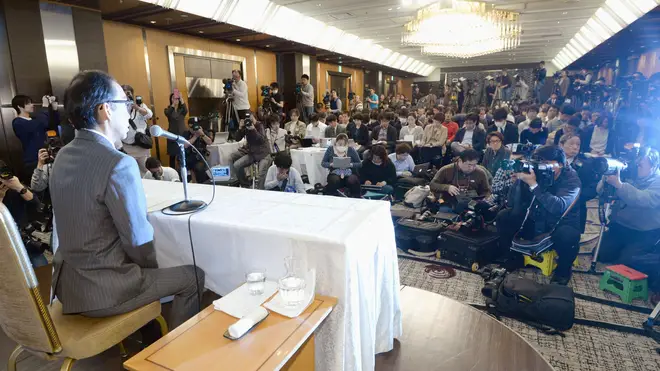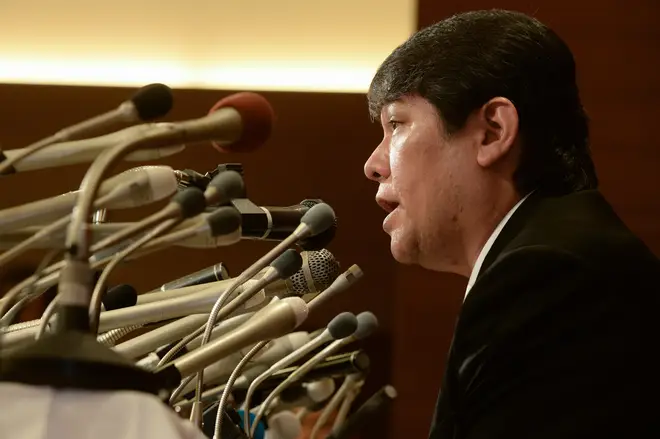On Air Now
Calm Classics with Ritula Shah 10pm - 1am
14 October 2021, 17:37

The extraordinary story of classical music’s greatest fraudster, and how he was found out.
Among the biggest scams in history is this incredible story of a deaf composer, once dubbed ‘Japan’s Beethoven’, who was unmasked as a fraud in the Spring of 2014.
Mamoru Samuragochi, who shot to fame in the mid-1990s, confessed to having hired someone else to write his most famous music for almost 20 years.
Samuragochi had claimed to be the composer behind video games such as Resident Evil, as well as his Symphony No. 1 (Hiroshima), a tribute to those killed in the 1945 bombing of the city.
The real composer behind these works was eventually revealed to be Takashi Niigaki, a music professor at a Tokyo college. Here’s his story, and how Samuragochi duped the world...
Read more: The story of concert pianist Joyce Hatto, and how the classical world was duped

In February 2014, the Winter Olympics were taking place in Sochi, Russia, and the 2010 Olympic bronze medalist figure skater Daisuke Takahashi was preparing to perform.
The Japanese figure skater was about to skate to Samuragochi’s Sonatina for Violin in front of a global audience.
“I could not bear the thought of skater Takahashi being seen by the world as a co-conspirator in our crime,” said Niigaki, who called a press conference in order to tell his story.
In an almost fifty-minute-long admission, Niigaki revealed to a field of microphones at the Hotel New Otani in Tokyo, that over the past over the past eighteen years, it had been him who had composed Samuragochi’s music.
The broadcast interrupted daytime Japanese programming to broadcast the conference, as Niigaki told the media that Samuragochi was not a musician and could not even write musical notation or scores.
It was in 2001, that Time magazine originally dubbed Samuragochi the “digital-age Beethoven”.
He played the piano for a journalist at the publication, who reportedly welled up, and Samuragochi told Time, “Losing my hearing was a gift from God.”
However, Niigaki also revealed in his February press conference that Samuragochi was not completely deaf, but Samuragochi had been over exaggerating his deafness.
Niigaki claimed the deafness was just an act in order for Samuragochi to enhance his Beethoven-esque reputation.

Samuragochi later responded to Niigaki’s statements with his own two-hour press conference a month later.
In his speech he apologised, and admitted to not having written any of the music he had previously claimed. He also admitted that while his hearing was impaired, it did not actually meet the legal requirements for deafness.
Since the pair’s press conferences in 2014, the two seem to have switched roles.
Samuragochi receded from the public eye, while Niigaki appeared on television and in magazine spreads. He was commissioned to write symphonies in his own name, and worked with orchestras who had previously unknowingly premiered his work.
Niigaki is now a popular and acclaimed composer in his own right. He has recently announced plans to open Shibuya Music College, an online college allowing students to take as many courses as they want for a monthly fee of 980 yen (£6.30).
We look forward to seeing Niigaki’s students continue his now unmasked legacy...